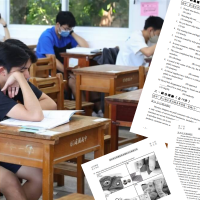TAIPEI (Taiwan News) — Taiwanese singer Rainie Yang (楊丞琳) angered Chinese netizens after she was quoted at a concert as saying Henan people "love to lie."
While holding a concert in Zhengzhou in China's Henan Province on Dec. 9, Yang blurted out "Henan people love to lie," spurring an uproar among Chinese netizens, per SET News. Some Chinese netizens argued that Yang potentially violated China's Public Security Administrative Punishments Law by spreading remarks that "hurt the feelings of the Chinese nation."
According to China's Dingxinwen, an audience member surnamed Liu (劉) said that when Yang was singing a song, the big screen suddenly projected a couple kissing in the audience, causing fans to scream. After finishing her song, she asked the crowd why they were screaming and requested the people involved to wave their glow sticks to reveal themselves.
Unexpectedly, the fans in the crowd were overly enthusiastic and all waved their glow sticks. After asking several times, Yang said, "Henan people can't be like this! You already have a reputation, you know? (You all) like to lie to others, don't lie to me. You people from Zhengzhou are so naughty."
Another audience member surnamed Chang (張) corroborated Liu's account and said that his immediate reaction was, "It's over, this sister said the wrong thing again." However, at the time, he believed it could be understood that the sentence was just a joke.
"After she said that sentence, she may have realized that there was a problem, and immediately ended the topic and sang another song," said Chang.
Some fans were offended and posted clips of her comments on Weibo. Footage of her comments went viral and soon sparked an outrage among Chinese netizens.
On Dec. 10, she apologized on Weibo for her "impolite and disrespectful" joke, but this did not end the controversy. According to the Chinese news site Gongfu Caijing, government agencies such as the Henan Culture and Tourism Department have received complaints about her comments and the Zhengzhou City government is investigating the incident.

















